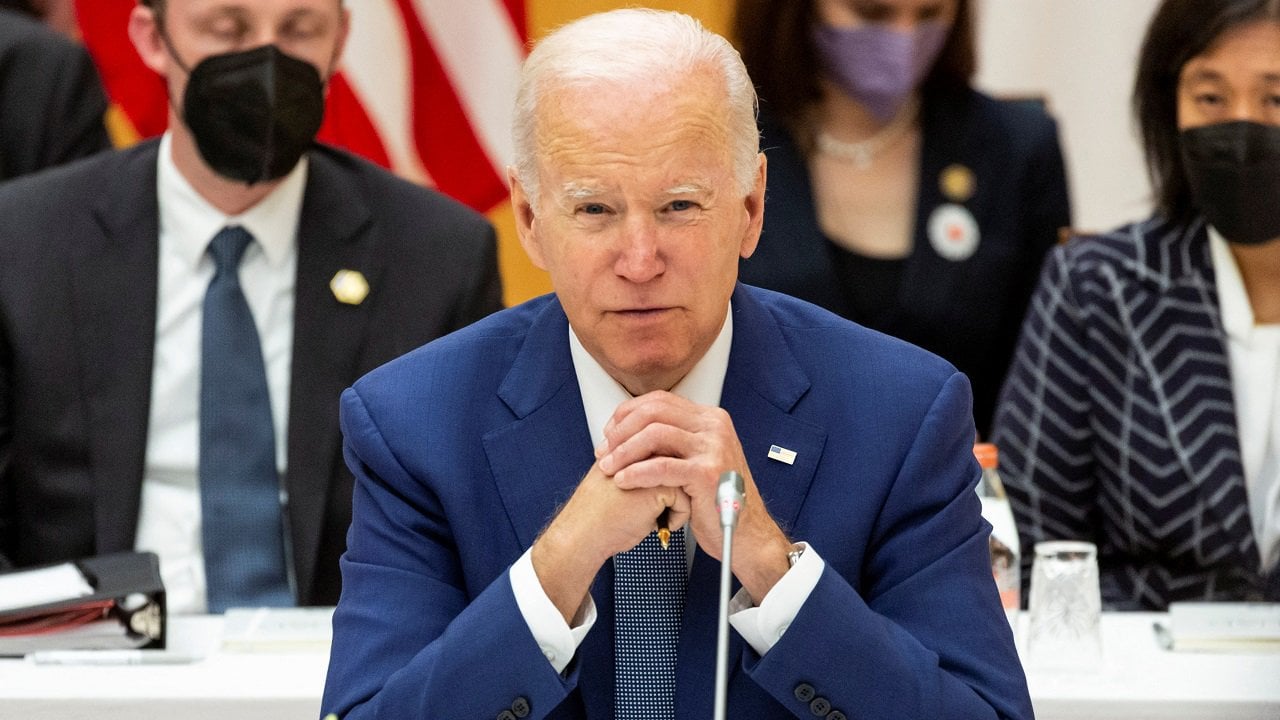Investigative journalist Seymour Hersh says that Joe Biden ordered the destruction of the Nord Stream 2 pipeline. If true, it would represent an explosive intervention in the Russia-Ukraine War, potentially upsetting the coalition that Washington has assembled to support Kyiv.
Does the claim stack up?
Seymour Hersh: The Man Making the Claim
Seymour Hersh is a Pulitzer Prize-winning journalist who has long sought to expose the abuses of the national security state of the U.S. executive branch.
Early in his career, he unveiled the massacre at the South Vietnamese village of My Lai, and later helped report on abuses at the Abu Ghraib prison facility in Iraq.
But Seymour Hersh’s history as a reporter is hardly unchequered.
Hersh’s biography of John F. Kennedy has been harshly criticized for errors of fact and interpretation.
Hersh also narrowly avoided a scandal when papers in his possession relating to the extramarital affairs of John F. Kennedy were assessed to be forgeries shortly before they were to become the core of an ABC documentary on the late President.
In 2015, Hersh published an account of the death of Osama bin Laden that contradicted nearly every official and unofficial account of the raid, proposing that, in fact, the terrorist leader was simply turned over to the United States by the Pakistani government.
Like the latest exposè, Hersh’s account of the Bin Laden raid relied heavily on a very small number of sources, a particularly serious problem because the story directly contradicted mountains of eyewitness testimony regarding the planning for, execution of, and aftermath of the raid.
Hersh’s reporting on the Syrian Civil War has similarly run into a firestorm of criticism. On the one hand, Hersh published an account of infighting between the Pentagon and the Obama administration that was, again, reliant on a single source and that ran against substantial amounts of reporting from other journalists. Hersh has also been harshly criticized for his contrarian assertions regarding the Syrian government’s use of chemical weapons.
Evidentiary Problems
Hersh’s reporting on the Nord Stream 2 attack relies heavily on a single source within the U.S. government who provided details not only of the deliberations behind the decision but also of the attack itself.
The operation involved a complex train of events in which divers installed explosives on the underwater pipeline, which were then detonated at a much later date. It implicates not only the U.S. government but also the Norwegian government and associates the attack with long-running U.S. government criticism of the pipelines.
The story has a veneer of plausibility; the attack on the Nord Stream pipeline remains unsolved. It is not difficult to imagine the motive, means, and opportunity for the United States government to carry out the operation. It also includes many small details, although this barrage eventually starts to pose questions in the mind of the reader about how a single-source could be privy to all of the evidence in question.
Unlike previous exposès, Hersh was unable to find a publisher for the piece, instead posting on his Substack. This is not necessarily cause for dismissing the story (editors can make poor decisions). Still, it is surely relevant that no major journalistic organization was capable of confirming the essence and details of the story, or willing to put its prestige behind the account.
The account also has some critical gaps. One surprising omission from Hersh’s reporting is a discussion of the legal reasoning behind the purported attack. It is not exactly true to say that the United States government never does anything illegal, but it is most certainly true that the executive branch invariably goes to great lengths to interpret the law in such a way that its actions appear legal from an internal perspective; lawyers are always present in major decisions about the use of force on the international stage, and can almost always offer an account of how any particular operation accords with domestic law.
In this case, Hersh offers only very thin gruel regarding how Biden’s public statements about the Nord Stream pipeline “ending” provided legal cover for the attack, a justification that executive branch lawyers are unlikely to find particularly compelling.
What Should We Think?
No one should trust an account of a massive conspiracy at the highest levels of government that relies on a single source. Moreover, Seymour Hersh’s reporting for the last decade has hardly earned him unequivocal trust from the reading public. That Hersh could not find a publisher for his explosive Nord Stream 2 story suggests that he has lost the confidence of the journalistic and editorial communities, communities that worshipped Hersh for decades.
There is much that we don’t know about the damage inflicted on the Nord Stream 2 pipeline. It would be unwise to rule out any eventuality at this point, given the strong incentives that every party has to deceive. All of the narratives as to who attacked the pipeline feel improbable, but at least one of them is true.
Given the importance of correct attribution, we need more than what Hersh can offer us.
A 19FortyFive Contributing Editor, Dr. Robert Farley has taught security and diplomacy courses at the Patterson School since 2005. He received his BS from the University of Oregon in 1997, and his Ph. D. from the University of Washington in 2004. Dr. Farley is the author of Grounded: The Case for Abolishing the United States Air Force (University Press of Kentucky, 2014), the Battleship Book (Wildside, 2016), and Patents for Power: Intellectual Property Law and the Diffusion of Military Technology (University of Chicago, 2020). He has contributed extensively to a number of journals and magazines, including the National Interest, the Diplomat: APAC, World Politics Review, and the American Prospect. Dr. Farley is also a founder and senior editor of Lawyers, Guns and Money.

